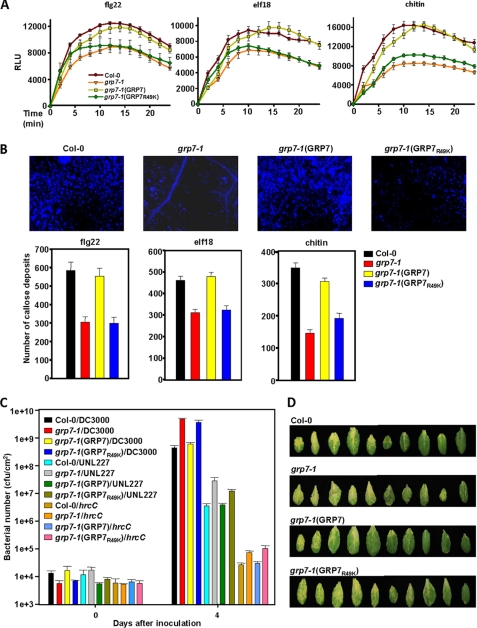FIGURE 5.
An Arabidopsis grp7 mutant is defective in PTI responses and more susceptible to P. syringae, and these phenotypes are complemented by wild-type GRP7 but not by a GRP7 derivative that is reduced in its ability to bind to RNA. A and B, ROS levels in relative light units (RLU) (A) and callose (B) in wild-type Arabidopsis Columbia-0 (Col-0), the Columbia-0 grp7-1 mutant, the grp7-1 mutant complemented with wild-type GRP7 (grp7-1(GRP7)), and the grp7-1 mutant complemented with a GRP7 derivative containing a lysine instead of an arginine at position 49 (grp7-1(GRP7R49K)) after treatment with flg22, elf18, or chitin. C, bacterial growth in the plants listed in A of wild-type P. syringae pv. tomato DC3000, a DC3000 polyeffector mutant lacking about one third of its type III effector inventory (UNL227), and a DC3000 mutant with a defective T3SS (hrcC). D, disease symptoms at day 4 on Arabidiopsis plants described in A after infection with wild-type DC3000.

